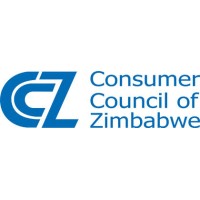The Consumer Council of Zimbabwe (CCZ) has urged the government to take firm action against the growing trend of speculative pricing, which is making life more difficult for ordinary citizens. The call comes shortly after Finance Minister Mthuli Ncube presented Zimbabwe’s 2025 Mid-Term Budget and Economic Review. The CCZ says while the review shows signs of economic improvement, the actual benefits are yet to reach the average consumer, who is struggling under the weight of rising prices and shrinking incomes.
In its recent statement, the CCZ called for stronger cooperation between the Ministry of Finance, the Reserve Bank of Zimbabwe (RBZ), and the consumer rights body to fight unfair pricing practices. Businesses across the country have reportedly been using forward pricing strategies, hiking prices in advance based on expected currency depreciation. This is mostly done to avoid potential losses if the local currency weakens. But for consumers, it has meant skyrocketing costs for basic goods and services.
“The cost of living is simply too high for most Zimbabweans,” the CCZ said. “We are seeing speculative pricing in almost every sector, especially for essential goods. There must be targeted monitoring and enforcement to bring this under control.”
Zimbabwe has been battling inflation and unstable exchange rates for years, but the recent sharp increase in speculative pricing is raising alarm among both consumers and watchdog groups. Many Zimbabweans now find themselves unable to afford everyday items as their salaries lose value due to inflation and currency fluctuations.
To address this, the CCZ is pushing for the government to establish a Consumer Engagement Framework. This would bring consumers into key financial decision-making processes and give them a stronger voice in how national budgets are created and implemented. The framework would be managed under the Ministry of Finance, in partnership with local authorities and the CCZ.
The Council acknowledged that the 2025 budget review includes some positive signs, such as increased spending on social infrastructure and a sense of macroeconomic stability. But it said the real test is whether ordinary people will actually see any improvement in their day-to-day lives.
“The promises made in the Mid-Term Budget Review must translate into affordable, high-quality goods and services,” the CCZ said. “Consumers are not just spectators in the economy. They are the ones who carry the burden when policies fail to control prices.”
The issue of speculative pricing also ties back to recent changes in government policy. Earlier this year, Treasury repealed Statutory Instrument 81A of 2024 through a new order, Statutory Instrument 34 of 2025. The older regulation had punished businesses for pricing goods and services above the official exchange rate. But that approach led to some market distortions and was widely criticized by business owners. The new SI 34 is aimed at allowing more flexibility and encouraging market-based pricing.
However, CCZ warns that liberalising the market without proper oversight could backfire. The Council believes the government must strike a balance between allowing free market principles and protecting consumers from exploitation.
Zimbabwe’s economy has long been characterised by instability. The Zimbabwean dollar has lost much of its value, leading many businesses and consumers to rely on the U.S. dollar. But dual pricing systems and lack of enforcement have further complicated the situation, allowing speculative pricing to thrive in both currencies.
CCZ’s statement reflects growing public frustration. Zimbabweans are not just complaining about high prices — they are demanding action from the people in power. As inflation continues to bite, the call for greater accountability, fairer pricing, and true economic inclusion is growing louder.
The coming months will show whether the government, central bank, and consumer advocates can work together to create a stable, transparent, and fair marketplace for all Zimbabweans.
